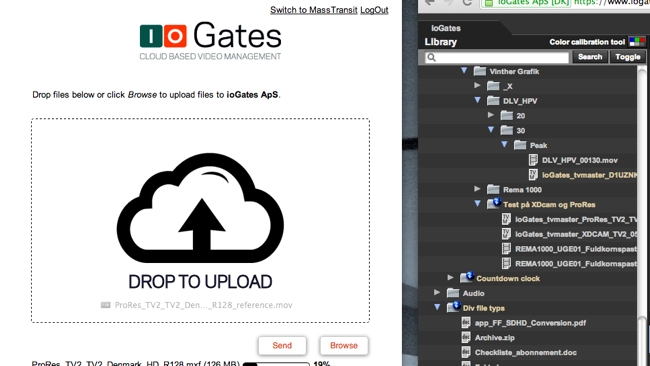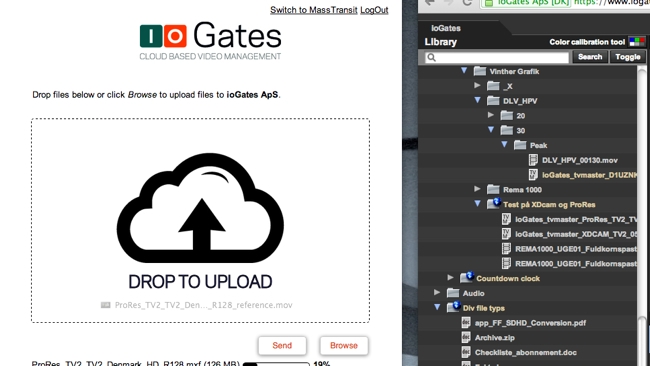
 IO Gates screenshotq
IO Gates screenshotq
What's the latest big thing? Apart from 4K and raw? Well, if you're a broadcaster or a production house and you need to work on multiple productions, it's just possible that you're starting to think of using a cloud service provider
We've said this before: just because your product has a network connection doesn't make it a cloud product. If you're going to move across to the cloud, you need a service provider that understands workflows and accommodates the nuances you'll encounter when working seriously in the cloud.
"I'd like a book, please"
And then there's the question of what exactly you want your cloud provider to do. Saying: "I want to move to a cloud provider" is a bit like walking into a bookshop and proclaiming "I'd like a book, please". You need to be rather more specific than that.
Already there are some very serious and credible players in the cloud marketplace. There's room for several because it's such a diverse field. Each has their own take on being a cloud media services provider and so they're rather hard to compare, except superficially. Sometimes you have to look at the users to really understand what the specific advantages of each might be.
For ever
IO Gates has been around for a decade, which, in cloud terms, is almost equivalent to "for ever". This puts them in a very good position, because if you've been around for that long, you've probably found some very good answers to the problems endemic to providing a cloud service.
You find this a lot with companies who have been around since the dawn of their specific technological field. For example, Quantel, who were manipulating video on computers in an era when most PCs only had a 40 character green screen (with absolutely no graphics capability) have some useful tricks in their gene pool which they only have because it was so difficult to do almost anything way back then.
It's the same with IO Gates. Although the timescales are shorter, they have capable solutions for most of the obstacles you come across in offering a cloud production service.
Comprehensive
If you fast forward today, you find that they have a very comprehensive offering that allows users to effectively outsource much of their production workflow, particularly where it involves libraries, archives and, transcoding and quality control.
A key element in the structure of IO Gates is the idea of a library. IO Gates is not merely project-based but is enterprise or facility-wide. So when you look at the main screen, you see a hierarchical overview of the entire operation. This is a big gain for busy production facilities because it makes it very easy to multi-purpose and re-use assets.
Further down the line, the built-in transcoding means that all the complexity of dealing with multiple formats is abstracted from the users, letting them concentrate on the quality of their work.
Quality assurance
Acknowledging the day-to-day practicalities of delivering media to and from broadcasters, the system even includes quality assurance tests, based on standardised appraisal techniques, and can even "top and tail" clips and programmes automatically to whatever specification is required.
We're going to hear a lot more about cloud production in the very near future, but it's encouraging to see such well-developed products that are already in use by multiple clients.
Tags: Business


Comments